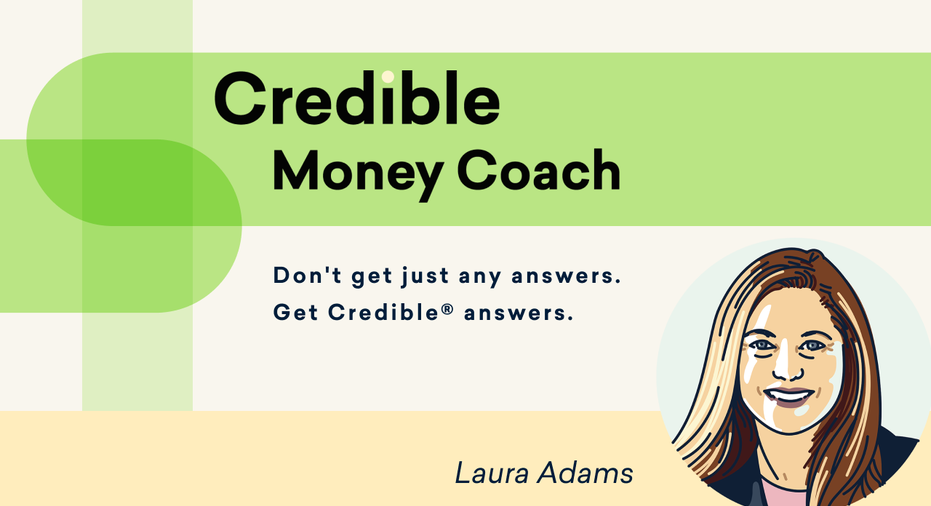My dad passed away and I’ve been paying his mortgage. How can I get the loan put in my name?

The Credible Money Coach offers some guidance on how to take over mortgage payments when a borrower passes away. (Credible)
Dear Credible Money Coach,
My dad passed away two months ago. I’ve been living in his house for the past few years. My wife and I were there to help take care of him. My wife also passed away unexpectedly. Now I don’t know what to do about the mortgage. I have no place else to live, and I’m on disability. I’m afraid to tell the finance company that he passed away, so I’ve just been making the payment. Is there any way I can get the mortgage in my name? — James
Hello James. I’m very sorry for your loss. I can’t imagine what it’s like to lose a spouse and parent in a short time, and the last thing you should have to worry about right now is keeping your home.
Fortunately, federal law does provide heirs protection when a deceased loved one’s home has a mortgage. You may be able to assume the mortgage on your father’s home if you meet some requirements. Although assuming the mortgage may be your best option, it may also be possible to qualify for a mortgage on your own, even with lower income. You can compare mortgage rates from multiple lenders by using Credible.
What happens to a mortgage when the borrower dies?
Mortgages typically can’t be transferred from one person to another. The borrower is responsible for repaying their home loan until they sell the property. Then the new owner must secure financing on their own.
But federal law makes allowances in cases where the primary borrower passes away. Here’s what can happen:
- A mortgage cosigner becomes responsible for repayment.
- The estate executor may sell the property and use the proceeds to pay the mortgage.
- An heir who wants to keep the property can petition the lender to assume the mortgage, putting it in their name. (But note that an heir is never required to assume a deceased family member’s mortgage.)
How easy it is to assume your father’s mortgage depends on whether you’re a legal heir and if there are others. If there are other heirs to your father’s estate, you’ll need to agree on whether you can take over the mortgage and keep the property.
But if you’re the only heir, and there isn’t a cosigner on the loan, your path to assuming the mortgage should be straightforward.
Assuming ownership of a property
To assume your father’s mortgage, you must secure ownership of the property. First, your father’s estate may have to go through probate, depending on the state where he lived.
Probate is a court-guided process that transfers property from a deceased person to their heirs. According to the last will, the court assesses a deceased person’s assets, pays off their debts, and distributes any remaining assets to heirs. If your father didn’t leave a will, the courts decide how to distribute his assets.
Once you have ownership of the home, you can ask the lender about assuming your father’s mortgage.
Assuming a mortgage
James, you say you continued paying the mortgage after your father’s death, which was wise. You avoided the risk of foreclosure by keeping the mortgage current, and you demonstrated that you can make the payments, even on disability income.
After you secure ownership of the home, reach out to the lender and let them know you inherited your father’s house. They can walk you through the process of assuming the mortgage.They may require you to provide proof of your father’s death and that you’re the legal owner of the property.
Also, you’ll need to purchase homeowners insurance in your name as required by the mortgage lender. You may be able to contact the existing home insurer and have your father’s policy transferred to you. Or you can shop around for new homeowners quotes and change the coverage to a new provider as you wish.
In the meantime, until everything’s official, it’s a good idea to keep paying the existing homeowners insurance and mortgage to maintain their current status. If you have any questions or need help navigating the mortgage assumption process, consult with an experienced estate attorney.
If, after assuming the mortgage, you decide to refinance, you can check out Credible to compare mortgage refinance rates from multiple lenders.
Ready to learn more? Check out these articles …
- Should you refinance with your current mortgage lender?
- How to get the best mortgage refinance rates
- Should you pay off your mortgage or invest the money?
- How much does a $300,000 mortgage cost and how can I get one?
Need Credible® advice for a money-related question? Email our Credible Money Coaches at moneyexpert@credible.com. A Money Coach could answer your question in an upcoming column.
This article is intended for general informational and entertainment purposes. Use of this website does not create a professional-client relationship. Any information found on or derived from this website should not be a substitute for and cannot be relied upon as legal, tax, real estate, financial, risk management, or other professional advice. If you require any such advice, please consult with a licensed or knowledgeable professional before taking any action.
______
About the author: Laura Adams is a personal finance and small business expert, award-winning author, and host of Money Girl, a top-rated weekly audio podcast and blog. She’s frequently quoted in the national media, and millions of readers and listeners benefit from her practical financial advice. Laura’s mission is to empower consumers to live richer lives through her speaking, spokesperson, and advocacy work. She received an MBA from the University of Florida and lives in Vero Beach, Florida. Follow her on LauraDAdams.com, Instagram, Facebook, Twitter, and LinkedIn.




















